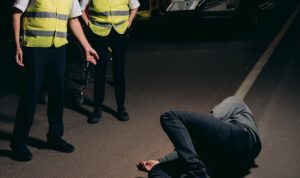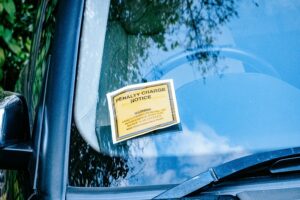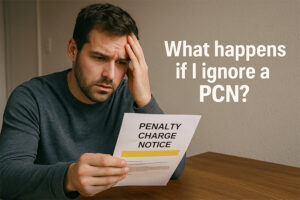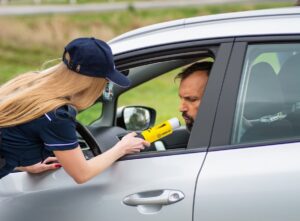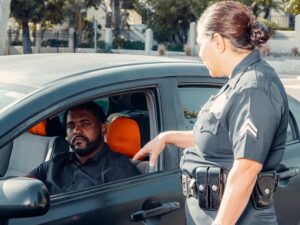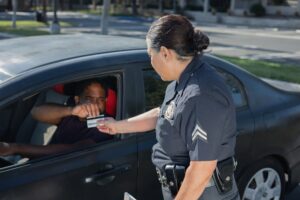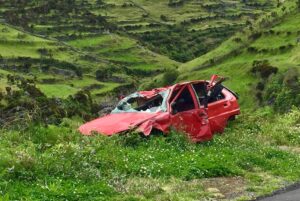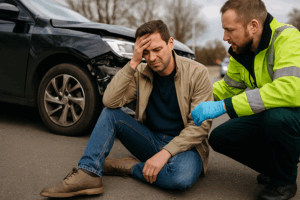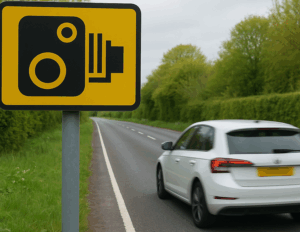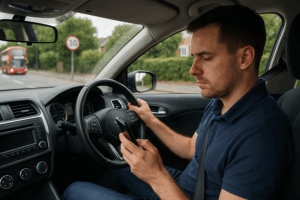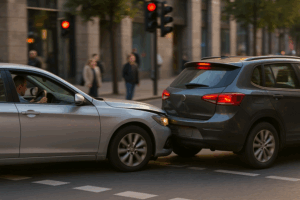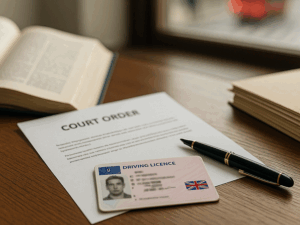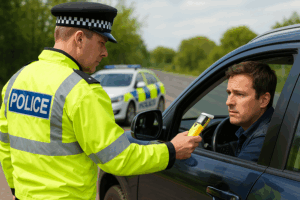Have you commited a hit and run? What happens next

Have you ever left the scene of an accident without reporting it? This act, known as a hit and run or leaving the scene of an accident, is severely punished by law in the United Kingdom. Failing to stop or failing to report an accident can result in substantial penalty charges, custodial sentence, and significantly complicate any claim or compensation proceedings. Seeking immediate advice from a solicitor specialising in Driving and Motoring Offence cases can help protect your rights and minimise the legal consequences.
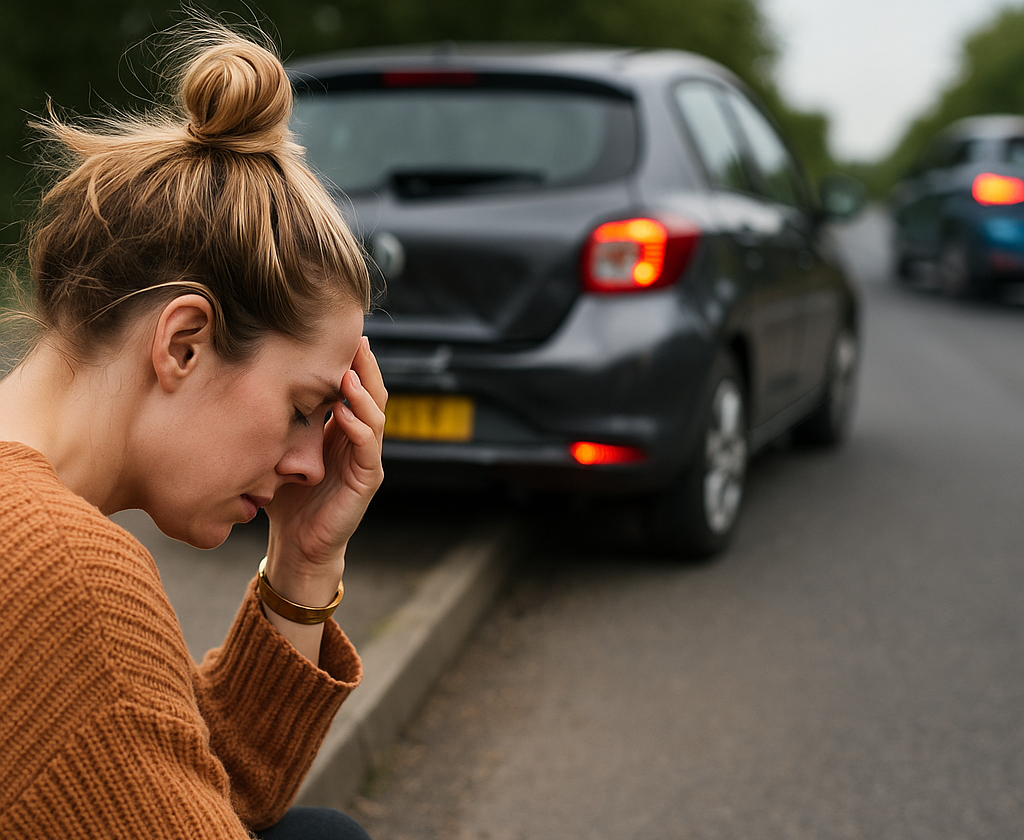
KEY TAKEAWAY: What happens if you leave after an accident without leaving your details?
Find out what steps to take, how a solicitor can protect your interests, and what the law actually stipulates about hit and run in the UK.
What is a hit and run offence in the United Kingdom?
In the UK, a hit and run offence occurs when a driver commits leaving the scene of an accident without ensuring that necessary information is exchanged with victims or reported to authorities. The accident reporting law mandates specific obligations that, if breached, constitute serious criminal offences.
Different types of hit and run and failing to stop offences:
- Failing to stop: Leaving the scene of accident immediately after any collision, regardless of severity.
- Failing to stop after an accident: Departing the scene following collisions involving property damage or personal injury.
- Failing to stop after clipping a wing mirror: Common scenarios where drivers make minor contact with vehicles, often parked car incidents, and leave without providing contact details.
- Failing to report an accident: Failing to inform police following any accident, even when damage appears minimal.
What should you do after an accident to avoid penalty?
Taking appropriate action can substantially reduce penalty risks, punishment severity, and claim or compensation complications following any accident:
- Stay at the scene: Leaving the scene of accident constitutes failure to stop or leaving the scene of an accident, even when damage appears minimal. This applies whether you’ve struck another vehicle, a parked car, or committed failing to stop after clipping a wing mirror.
- Exchange information immediately: Provide your name, address, insurance details, and vehicle registration. Collect identical information from other parties involved.
- Check for injuries: Ensure all parties are safe and call emergency services if anyone requires medical attention.
- Document everything thoroughly: Photograph all vehicle damage, the accident scene, road conditions, and any parked car positioning. Note time, weather conditions, and traffic circumstances.
- Contact the police: Report the accident to police within 24 hours as required by accident reporting law. Failure to comply results in failing to report an accident charges.
- Remain factual and neutral: Avoid admitting fault at the scene to prevent complicating subsequent legal defence or insurance claim proceedings.
- Contact a specialist solicitor: Professional legal advice protects rights, guides report preparation, and prepares for potential claim or compensation proceedings.
What happens if you don’t stop after an accident?
Failing to stop after an accident triggers immediate criminal liability with severe legal consequences. The law treats hit and run behaviour as serious criminal conduct requiring mandatory prosecution:
- Criminal charges: Failure to stop and failing to report an accident charges are automatically filed as RT88 offence cases.
- Police investigation: Comprehensive investigations utilise CCTV, witness statements, and forensic evidence to identify perpetrators.
- Arrest and questioning: Police powers include arrest, vehicle seizure, and formal questioning under caution.
Police employ sophisticated investigation techniques following hit and run incidents:
- Vehicle tracking: ANPR systems and vehicle registration database searches.
- CCTV analysis: Traffic cameras, private security footage, and dashcam evidence.
- Witness canvassing: Systematic collection of eyewitness accounts and statements.
- Forensic examination: Paint transfer analysis, impact damage assessment, and debris examination.
Report yourself after hit and run: Penalty impact and timing
Self-reporting following hit and run incidents can significantly influence legal outcomes, though timing proves crucial for penalty mitigation and sentence determination:
- Legal recognition and cooperation credit: Demonstrates genuine remorse and acceptance of responsibility, shows compliance with accident reporting law obligations, police and courts view immediate reporting favourably when determining punishment.
- Reduced criminal penalty outcomes: May result in reduced penalty charges under sentencing guidelines, reduced likelihood of custodial sentence, lower financial penalty amounts.
- Shortened disqualification periods: Shorter driving disqualification periods, enhanced mitigation arguments in court, more lenient sentence consideration under sentencing guidelines.
- Expedited claim and compensation resolution: Facilitates expedited victim claim and compensation proceedings, enhanced prospects for claim settlement, reduced civil liability complications.
Hit and run penalty: Sentencing guidelines and punishment
Hit and run offences carry severe penalty consequences under UK law. The sentencing guidelines establish comprehensive punishment frameworks that courts must apply consistently:
- Financial and custodial punishment: Fines up to £5,000 calculated according to offender means and accident severity, prison terms up to 6 months for aggravated hit and run offences, penalty points ranging 5-10 for less serious failing to stop cases.
- Driving prohibition consequences: Mandatory licence disqualification ranging from 12 months to indefinite periods for serious cases, immediate driving ban enforcement, extended prohibition for repeat offenders or aggravated circumstances.
- Long-term legal implications: Hit and run convictions appear on enhanced DBS checks for 11 years, penalty points remain for 4 years affecting future insurance and legal proceedings, permanent criminal record impact on employment prospects.
Factors affecting penalty severity under sentencing guidelines:
- Aggravating circumstances increasing punishment: Previous convictions for hit and run or related driving offences, accident involving personal injury or substantial property damage, leaving the scene of accident following dangerous or reckless driving, attempts to conceal identity or accident involvement.
- Mitigating factors reducing sentence: Immediate self-reporting and cooperation with police, genuine emergency circumstances explaining departure, minimal damage and no personal injury, clean previous driving record with early guilty plea.
- Professional and commercial implications: Enhanced penalty for professional driving responsibilities or commercial vehicle operation, stricter sentencing guidelines application for repeat offenders, increased punishment for public safety roles.
Financial liability and compensation consequences:
- Insurance and premium implications: Premium increases of 200-400% and potential policy cancellation, insurance companies may refuse coverage for hit and run incidents, personal liability for all victim claim settlements beyond criminal penalty.
- Civil claim and compensation liability: Substantial civil liability for victim compensation beyond criminal penalty consequences, drivers personally liable for all claim settlements when insurance refuses coverage, leaving the scene of accident complicates victim compensation proceedings.
How can a solicitor help you after a hit and run accident?
Specialist criminal law solicitors provide comprehensive protection following hit and run allegations, utilising expertise in Driving and Motoring Offence law to achieve optimal outcomes:
- Evidence and rights protection: Secure CCTV footage, witness statements, and technical evidence before loss or deterioration, professional communication with investigating officers to protect client interests, ensure proper legal procedures during questioning and investigation, guide client behaviour to minimise penalty risks and sentence exposure.
- Defence strategy and case analysis: Comprehensive review of accident circumstances, police evidence, and procedural compliance, challenge RT88 offence allegations where proper procedures weren’t followed, identify weaknesses in prosecution evidence or police investigation procedures, develop emergency or medical justification defences where applicable.
- Court representation and sentencing guidelines expertise: Professional representation during hit and run proceedings, utilise detailed knowledge of sentencing guidelines to achieve minimum penalty consequences, strategic presentation of defence evidence and mitigation, assess grounds for challenging conviction or sentence severity.
- Financial protection and compensation management: Professional management of claim proceedings and compensation negotiations, navigate complex insurance implications and coverage disputes, minimise personal liability while ensuring accident reporting law compliance, achieve fair compensation agreements protecting long-term financial interests.
FAQs
What happens if I only hit a parked car and leave without leaving my details?
Even minor contact with a parked car constitutes failing to stop after an accident under the law. Police can prosecute under accident reporting law, resulting in penalty charges ranging from fines and points to potential custodial sentence depending on circumstances and previous record.
How long do I have to report an accident before it becomes an RT88 offence?
According to accident reporting law, all accident incidents must be reported to police within 24 hours to avoid failing to report an accident Late reporting constitutes an RT88 offence with identical penalty consequences to failure to stop.
Every accident, no matter how minor, demands immediate compliance with accident reporting law. Hit and run behaviour transforms simple incidents into serious criminal matters with devastating consequences for your future.
Don’t face hit and run charges alone!
Qredible’s network of specialist driving and motoring offence solicitors provides immediate, expert protection when you need it most.
KEY TAKEAWAYS:
- Leaving the scene of an accident constitutes hit and run in the UK, resulting in mandatory penalty charges, severe sentence consequences, and complex claim or compensation proceedings.
- Complying with accident reporting law and immediately reporting accident incidents to police eliminates failure to stop or failing to report an accident liability.
- Specialist Driving and Motoring Offence solicitor representation helps manage defence strategies, negotiate penalty reductions, and secure optimal financial compensation outcomes.
Articles Sources
- legislation.gov.uk - https://www.legislation.gov.uk/ukpga/1988/52/section/170
- sentencingcouncil.org.uk - https://www.sentencingcouncil.org.uk/offences/magistrates-court/item/fail-to-stopreport-road-accident-revised-2017/
- assets.publishing.service.gov.uk - https://assets.publishing.service.gov.uk/government/uploads/system/uploads/attachment_data/file/680970/reporting-road-accidents-consultation.pdf
- uklaw.co.uk - https://www.uklaw.co.uk/personal-injury-compensation//hit-and-run-compensation-failure-to-stop-accident-claims/
Do you need a solicitor?
Find a solicitor on Qredible in just a few easy steps










